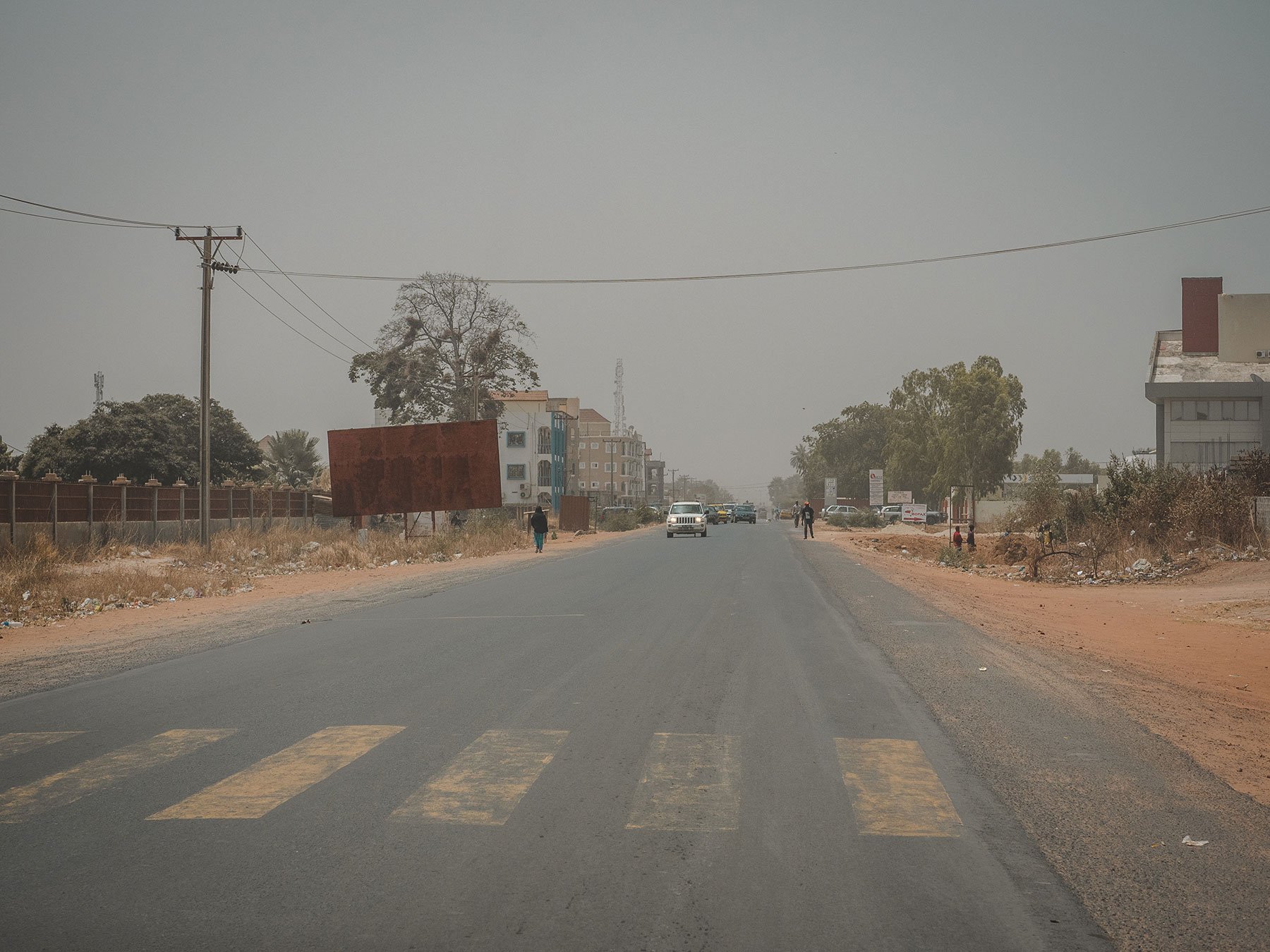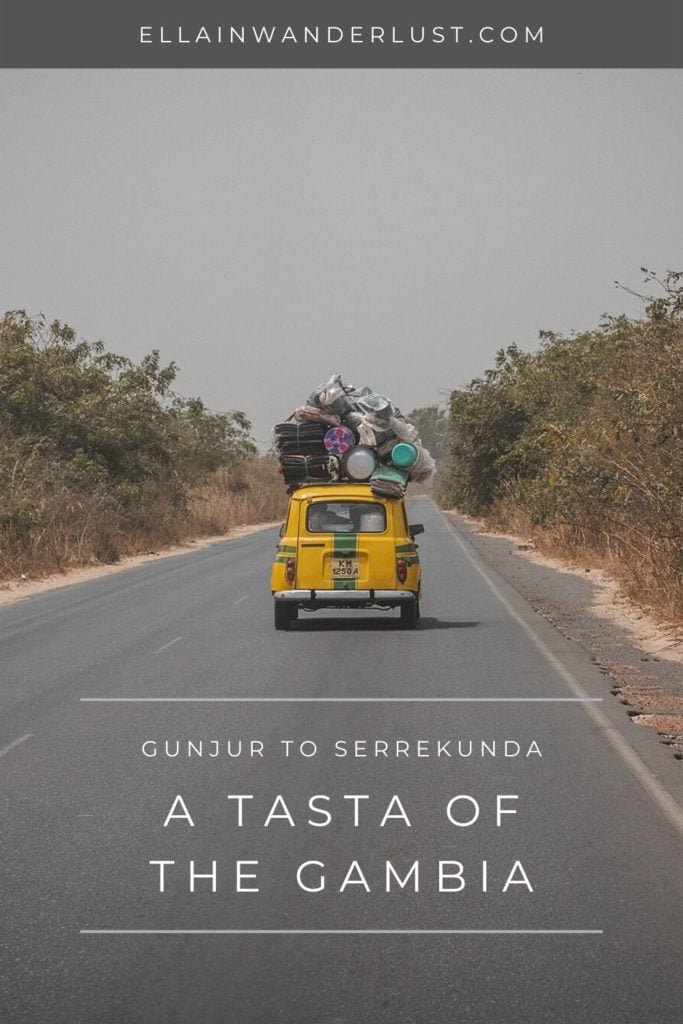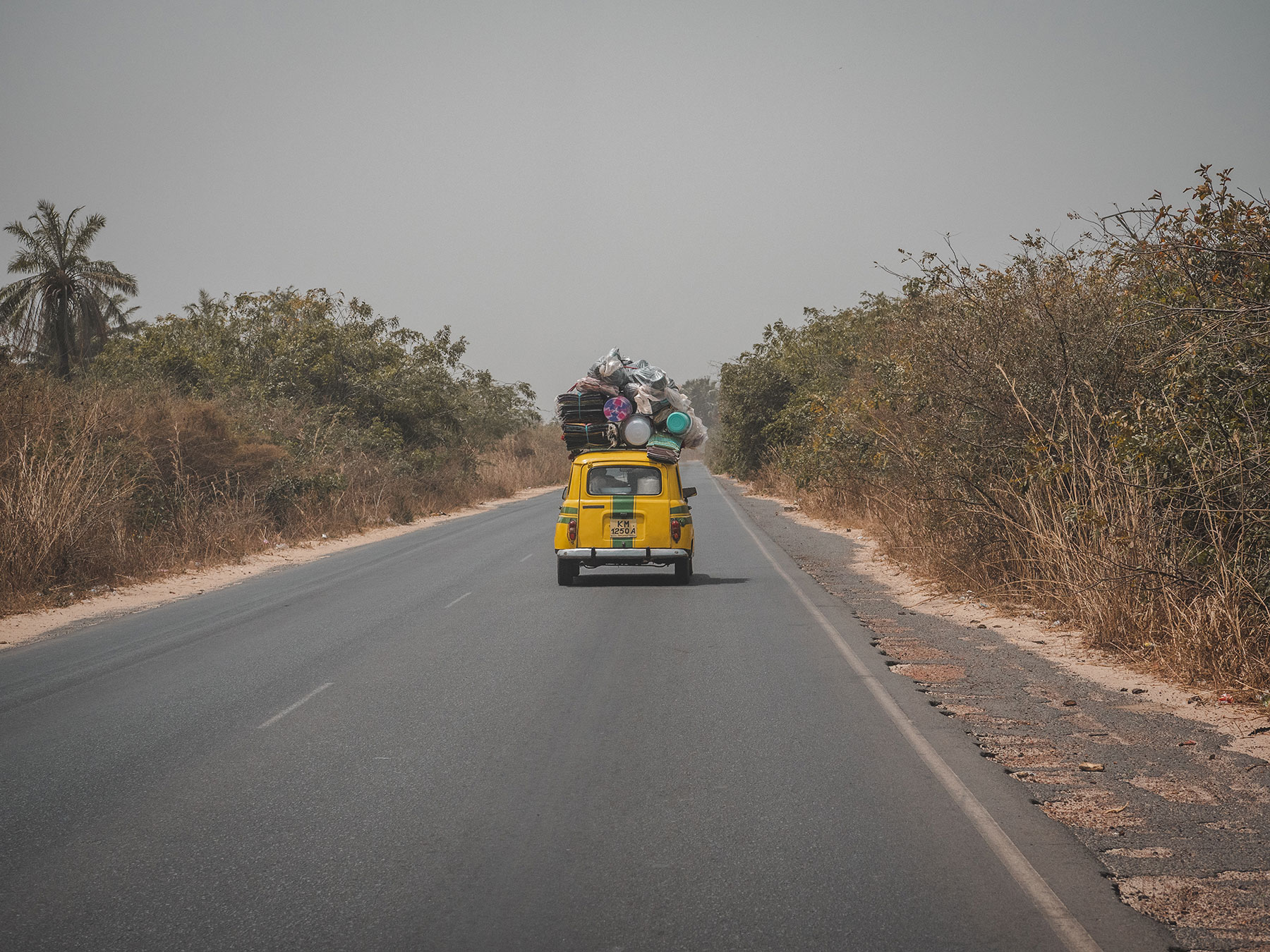
My first morning in The Gambia had been spent relaxing in the scorching 40 degree Celsius sun and gorging on delicious food at our eco-lodge. It had been a welcome start to our 4 day retreat to Africa’s smiling coast.
Although we had arrived last night, we had decided against picking up our rental car upon arrival. With night around us, we thought it would be more relaxing to grab a taxi and then pick up our car the following morning when we had more time and the driving conditions were more favourable. Advice online strongly advises against driving at night (in fact it strongly advises against driving at all) and we didn’t want to push our luck.
We had just finished eating our breakfast, making it time to grab a taxi and head to the town of Serrekunda, the largest town in The Gambia and the key tourist hub of the country, to pick up our rental car.
Our eco-lodge had a taxi rank just outside with set-prices depending on where you are heading. It was £20 to Serrekunda. Although it would have been far cheaper to hail a bush taxi from the main road (more like £2 for the journey), I decided it was worth spending a little more to have as stress-free an experience as possible. Yes, I do value comfort over budget.
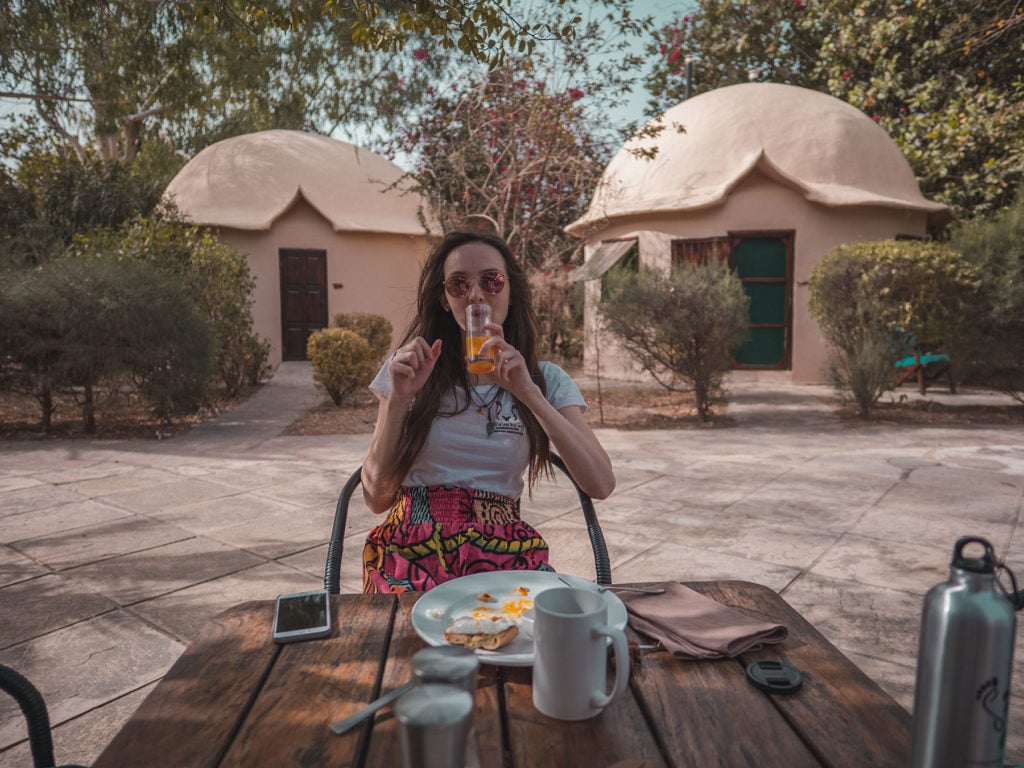
I’d organised the taxi earlier in the morning so as we walked down to the gates, we were greeted by our taxi driver. Our ride for the morning was an ancient burgundy BMW saloon and in typical Gambian fashion, our air-conditioning was an open window. What was even more spectacular was the fact that this vehicle had clocked over 300,000 miles! I didn’t know that was possible.
The hot dusty air blew at my face as the car bumped ungracefully down the dirt track which led from our lodge to the main coastal road. Behind the growling of the ancient engine, I took in the beautiful chorus of birdsong backed by the screeching of insects. There was no denying that the thick forests we were driving through were teeming with life.
We passed quaint settlements with livestock sauntering in front of them. A majestic cow walked through the undergrowth beside us, its cream pelt glistening as rays of sunlight filtered down through the canopy above.
On the opposite side of the road was a flock of chickens. There was no denying that these were free-range!
Perhaps my favourite animal we passed was a tiny goat drinking out of a well. Its stumpy tail was wagging with glee behind it.
It wasn’t long until we arrived at the main road, a wide expanse of tarmac with sand blowing relentlessly across it.
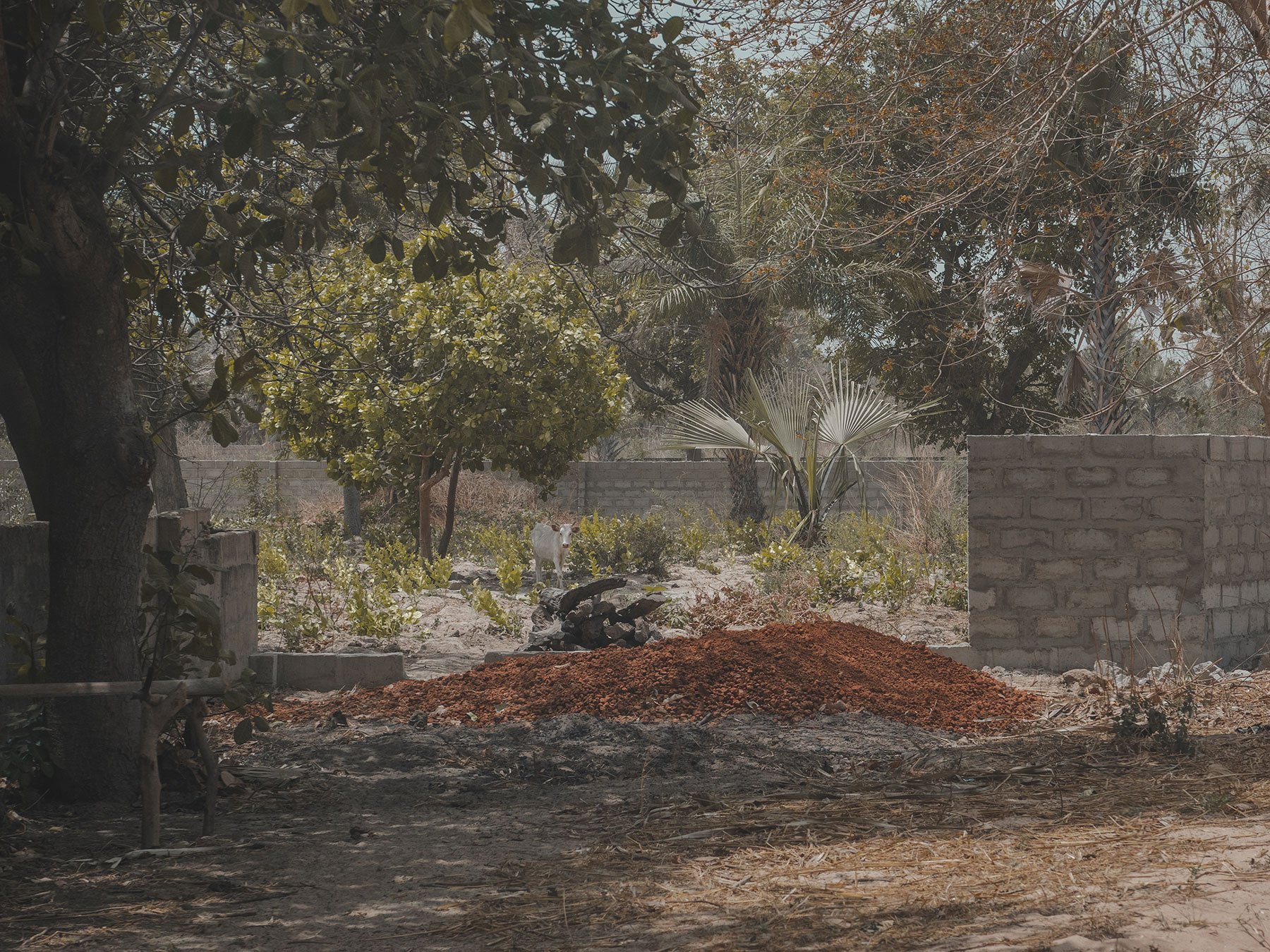
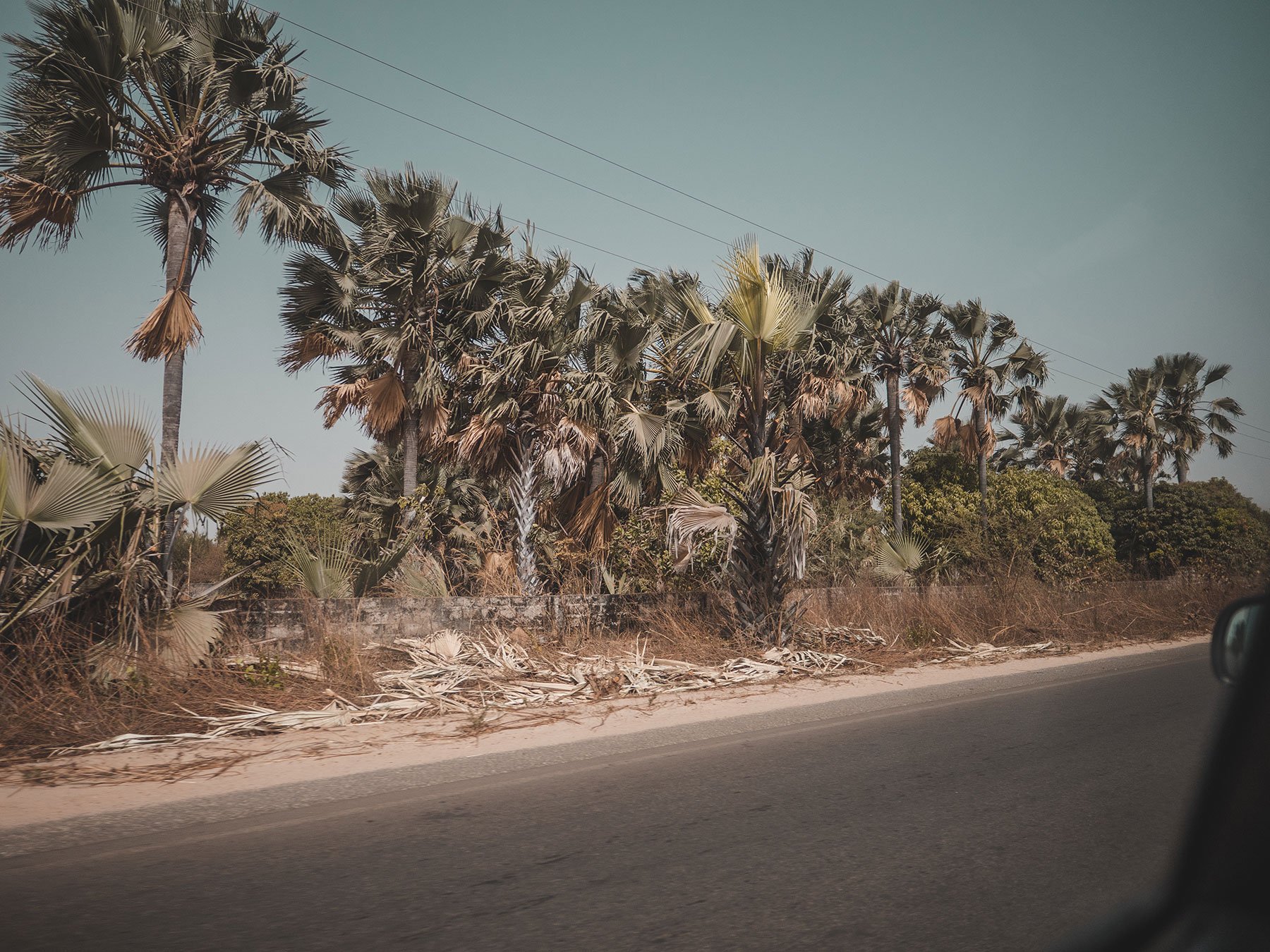
The Gambia is a country of varying terrains. In the heart of the country, where the River Gambia lies, the land is lush. Thick green forests flank the shores of the river with precious mangroves feeding from the water. As you venture further away from the country’s veins, the terrain becomes a lot drier.
Along the country’s coastline, where we were, the ground was bone dry and carpeted in a layer of orange dust. Despite the apparent hostile terrain, life was plentiful. It’s amazing how many species of flora and fauna can flourish in such dry environments.
Sitting in the back of the car, I was transfixed as I watched The Gambia swirl past my window.
I took in the rows of lush palms and the tall and iconic baobab trees. Breaking up the expanse of trees were settlements, a contrast between large gated houses and the more frequent smaller builds.
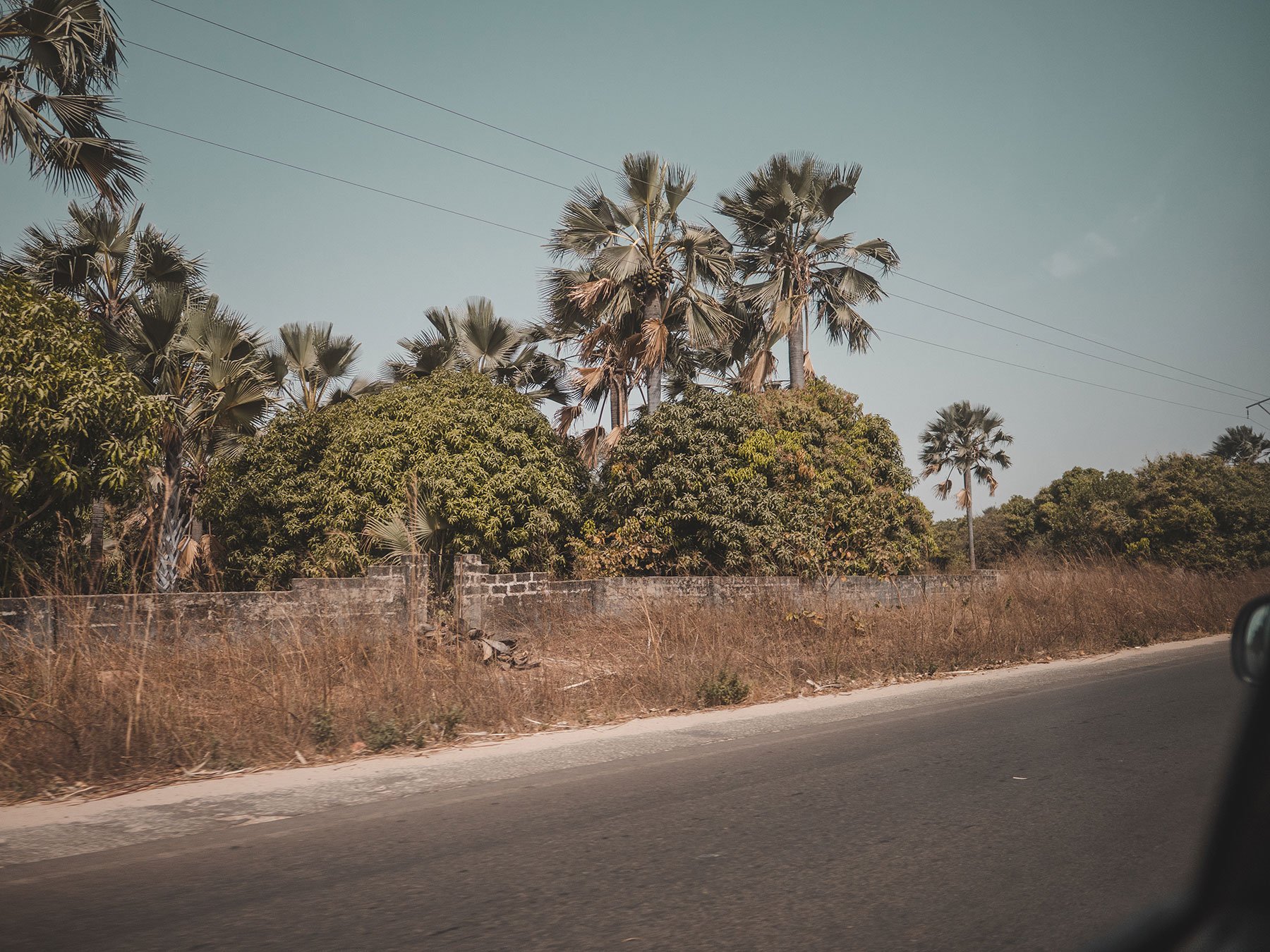
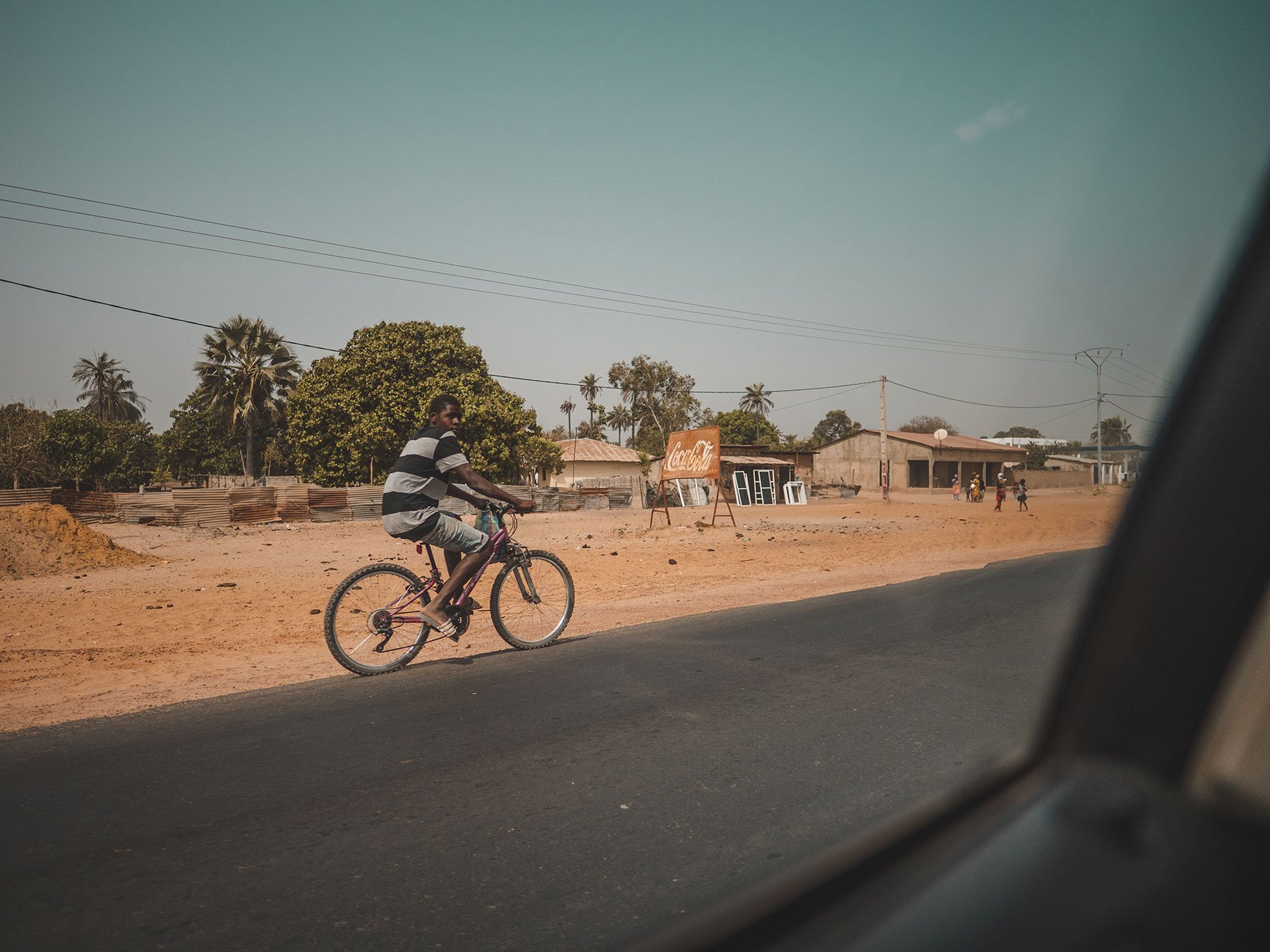
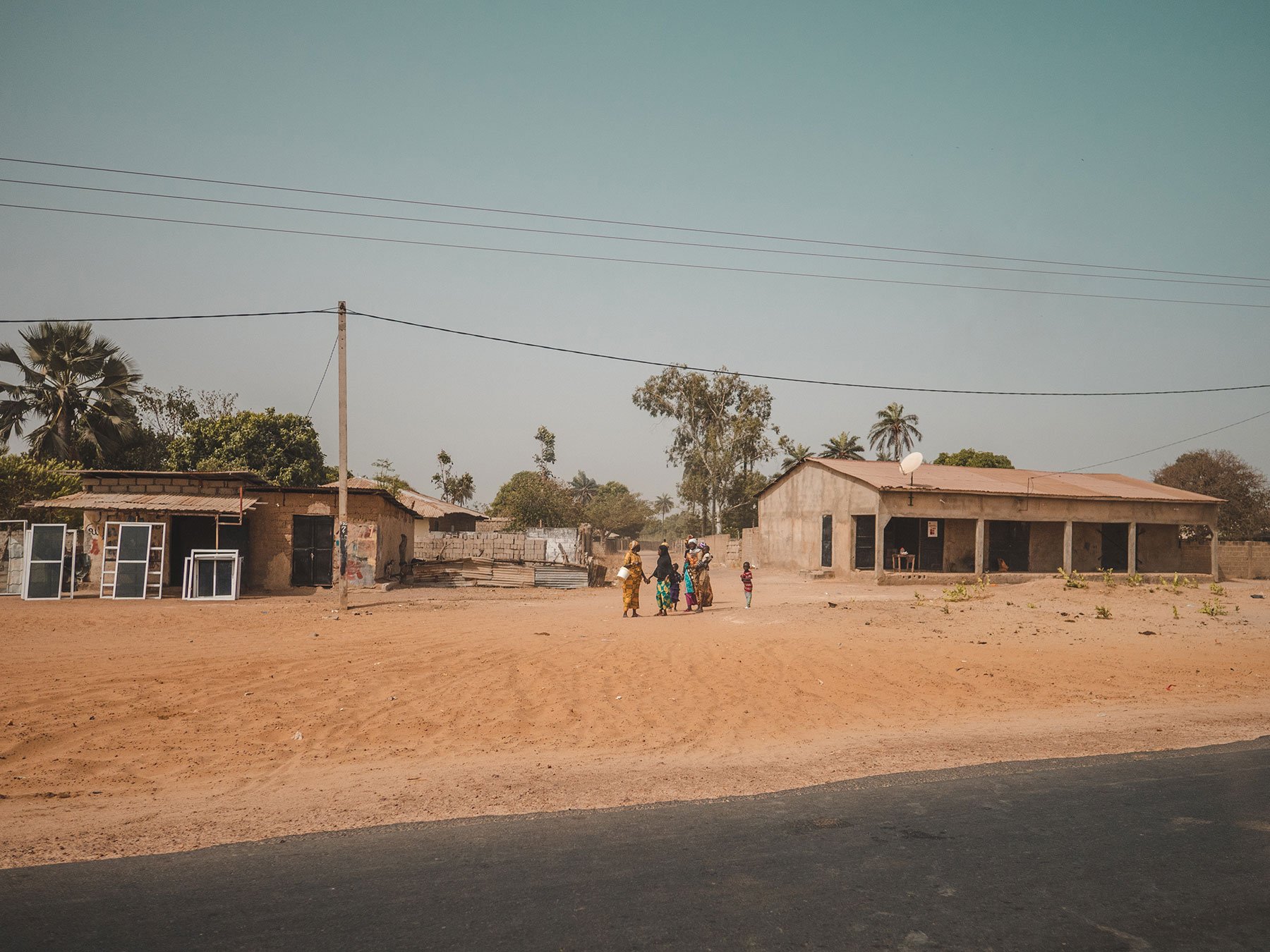
I watched as people went about their daily business. Women in colourful attire walked alongside their children carrying items on their heads – a skill that I can’t even contemplate mastering. Boys cycled to local villages and school children screamed in delight as they played football.
Every now and then my eyes would get attacked by a huge gust of dust, disturbed by yet another lorry carrying tonnes sand, a sign of development along the coastline. These sand trucks were travelling along the coastal road in hoards. I can’t tell you how many we had to overtake! Black smoke billowed from their chimneys and their engines roared threateningly.
But they were far from the only obstacles we faced on our journey. Goats and cattle would frequently decide to cross the road without checking whether or not it was clear. It was always a heart-stopping moment when one would valiantly trot into our tracks. Fortunately, none were harmed!
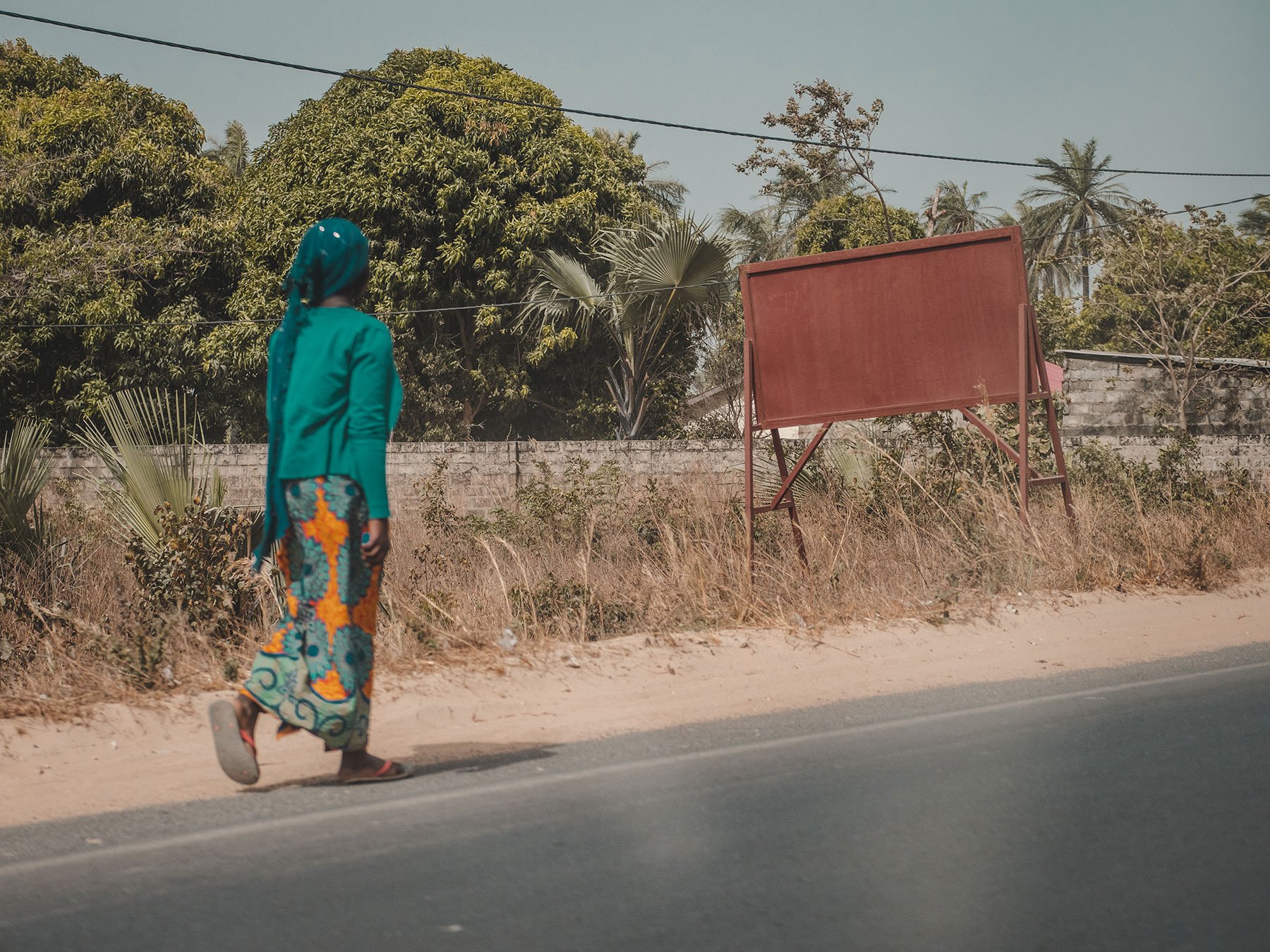
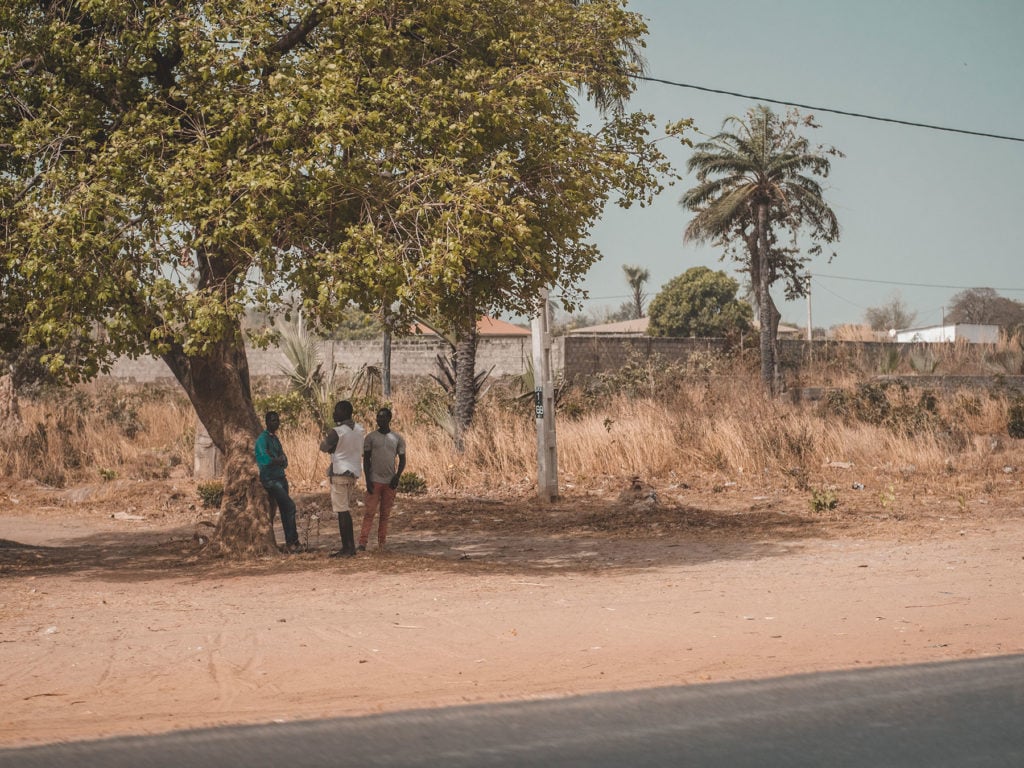
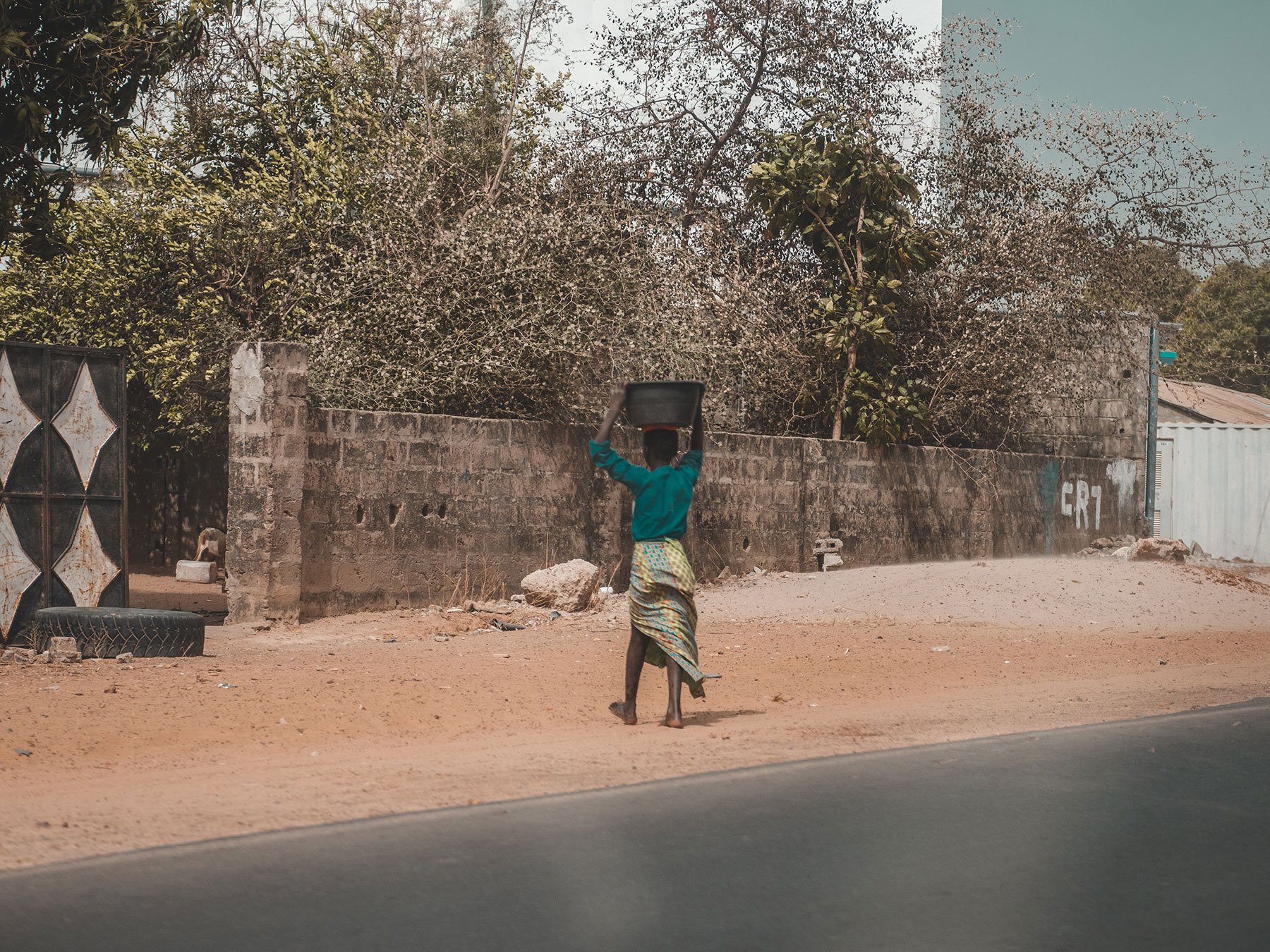
In the clear blue skies were vultures, circling ominously. I never realised just how huge these birds were! They were mesmerising and surprisingly frequent. Every section of sky was occupied by yet another majestic vulture.
The further north we drove, the more developed the scenery became, leaving the forests of trees behind us. The vegetation was instead replaced with shops and large quantities of people.
Donkey-driven carts took to the road, joining the traffic of cyclists and brightly-coloured yellow and green Mercedes taxis. Other donkeys and mules waited by the side of the road, empty carts lain beside them, their tails flicking away flies.
We were in the fishing town of Tanji now. Tanji was alive with people. As we passed streets leading to the ocean I could just make out the fishing vessels bobbing in the water. The streets were busy as people sold their fresh catches of the morning and hungry seagulls circled in great flocks overhead.
As we left Tanji behind us, for a moment all seemed quiet. To our left was a peaceful lake, home to several birds including great egrets. Behind it were pristine hills of sand and the endless Atlantic ocean.
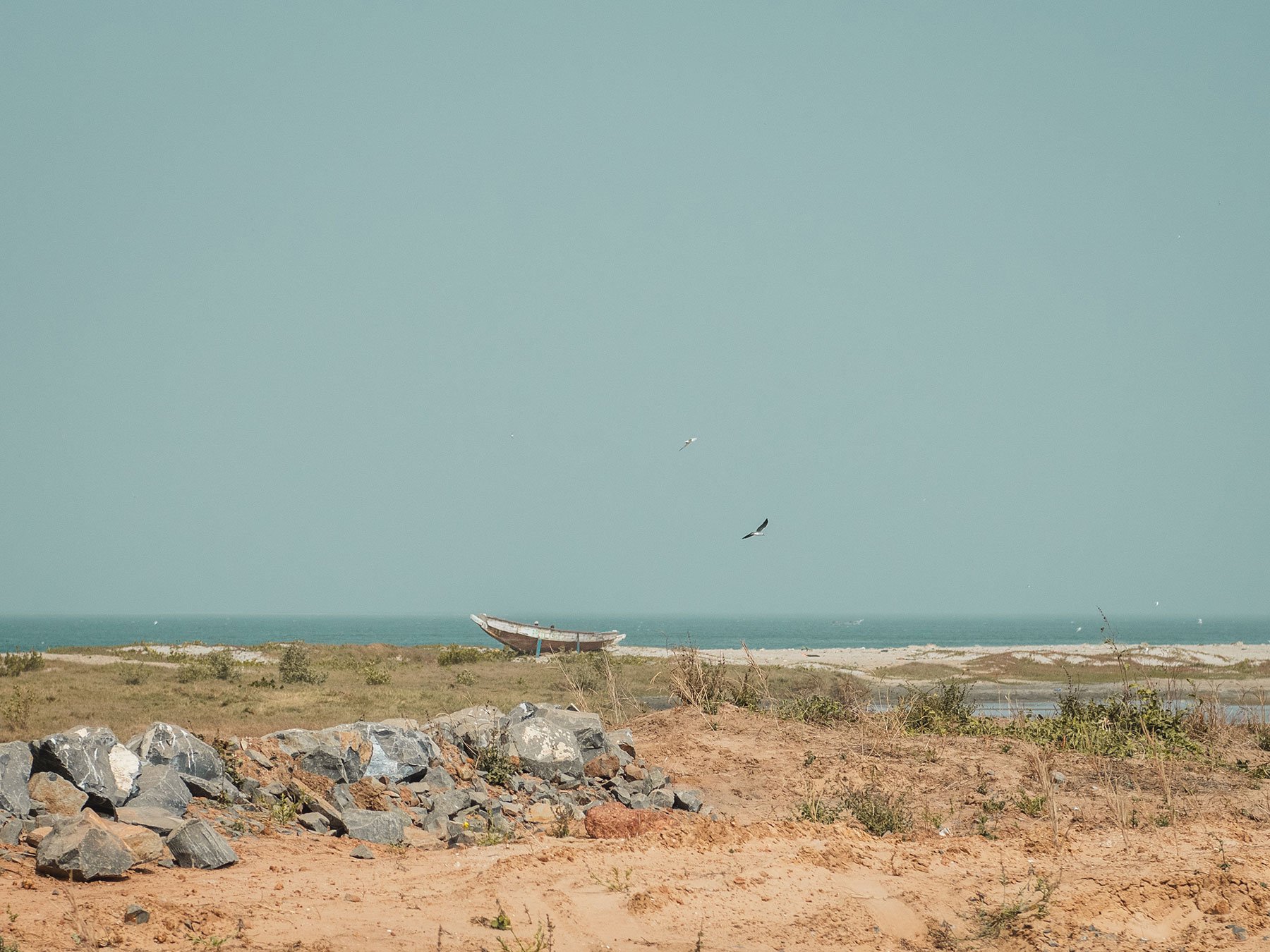
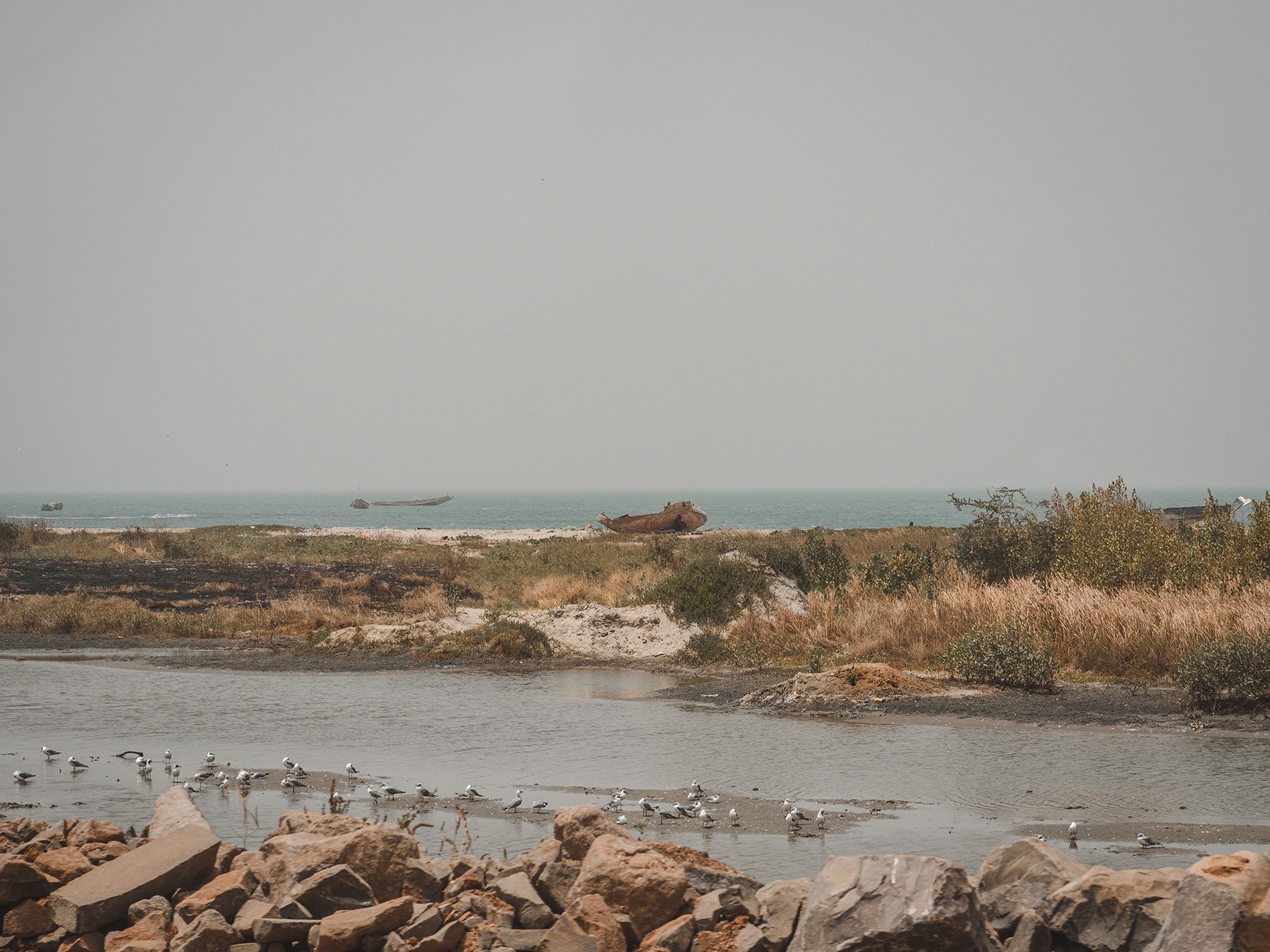
We were driving ever-closer to Serrekunda and it wasn’t long before we were engulfed by the urban landscape. Buildings were everywhere including glistening modern towers.
My eyes were drawn to the fruit-sellers at the side of the road, selling a colourful array of produce.
The roads were hectic. Traffic was a combination of bikes, horse-drawn carts, cars and lorries. On top of that, people would cross the road at random points and cars would join the road without warning. There was no waiting; they’d just join. It was a kind of beautiful chaos.
We drove past a parked silver Mercedes van. My eyes were drawn to its driver-side door which was littered with what looked like bullet-holes. My eyes widened in surprise. Was I really seeing this right? In the windscreen was a piece of paper which said ‘for sale’. I was left wondering if its previous owner survived or not. I wasn’t sure what to think.
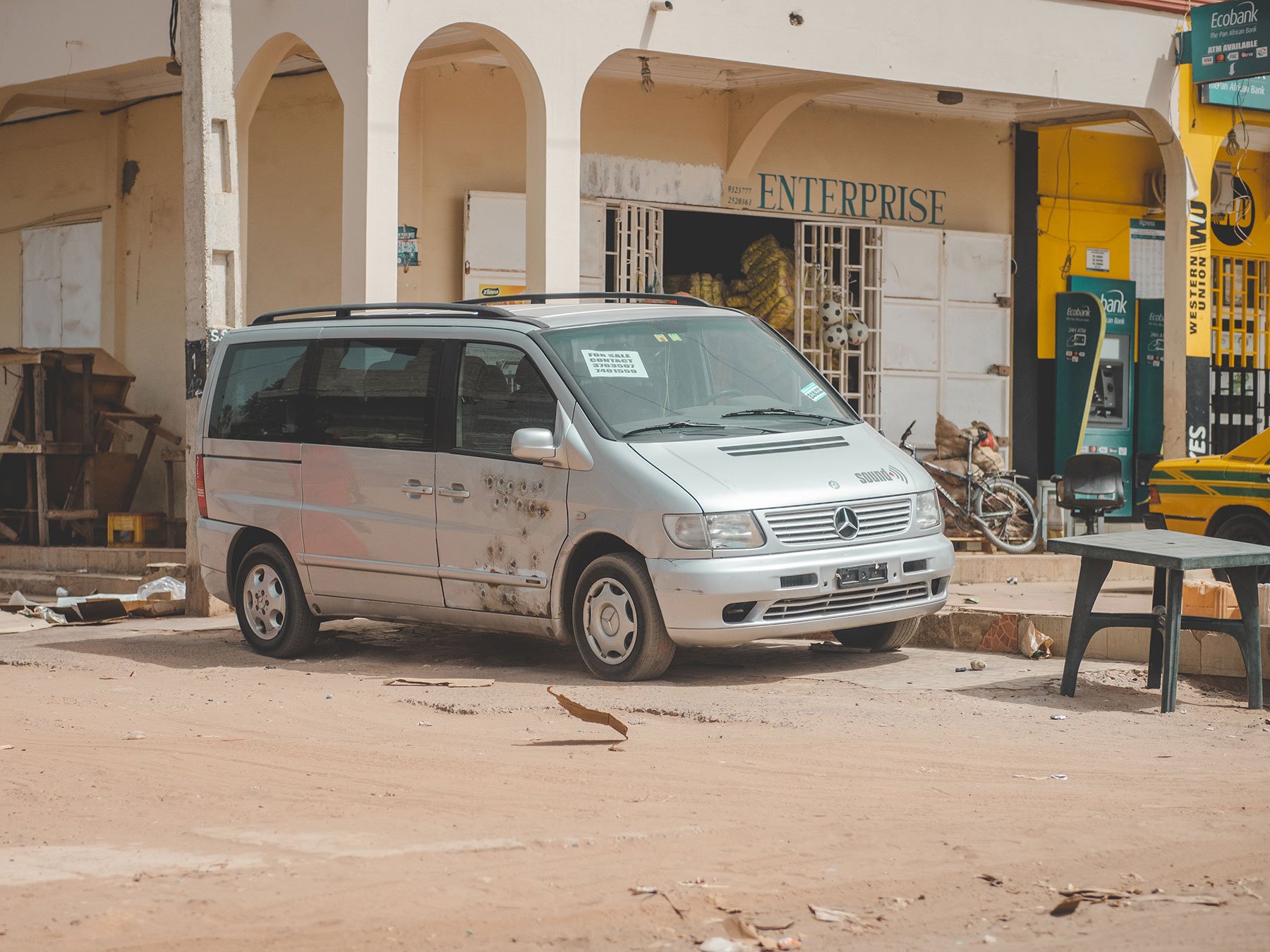
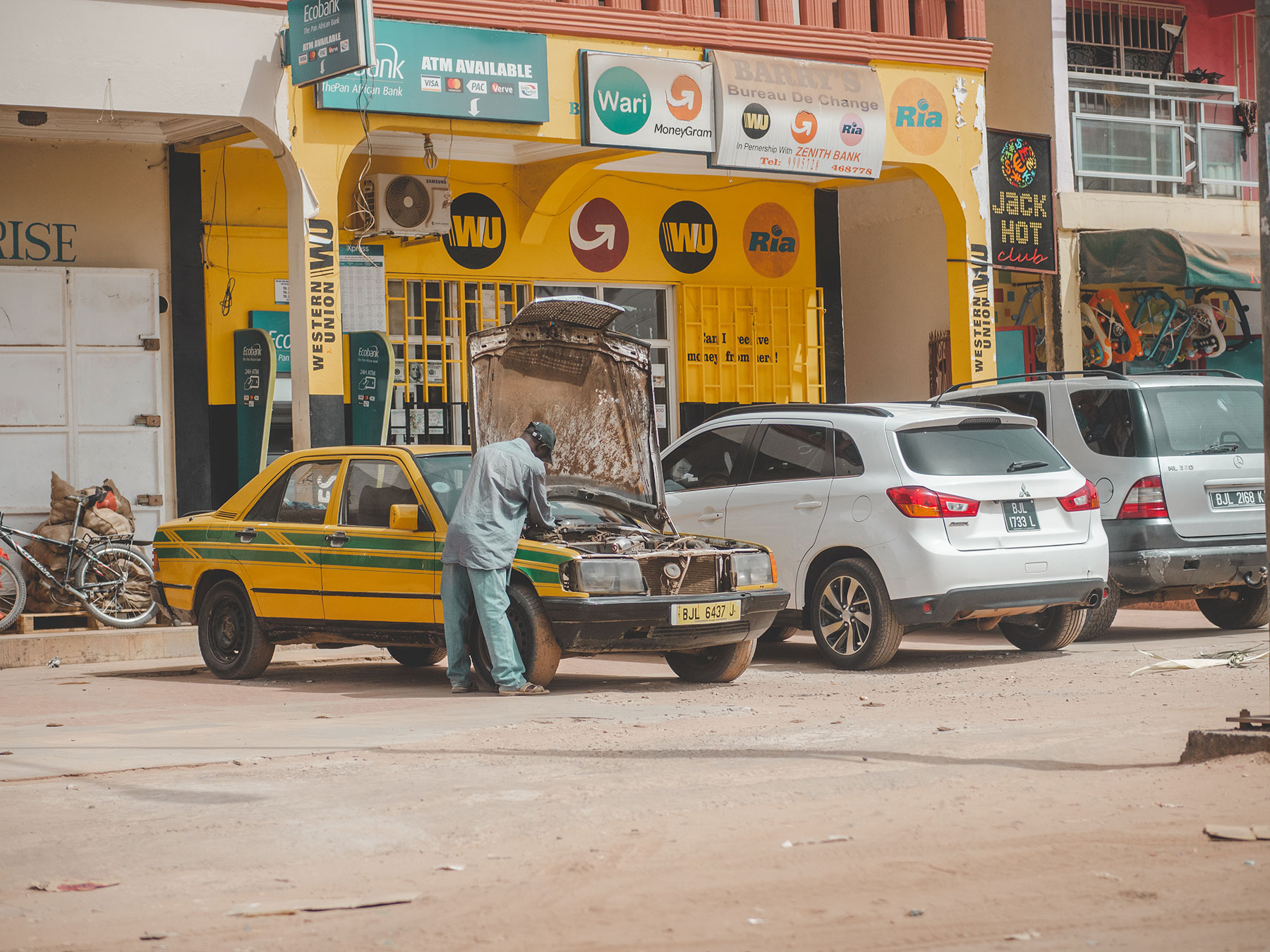
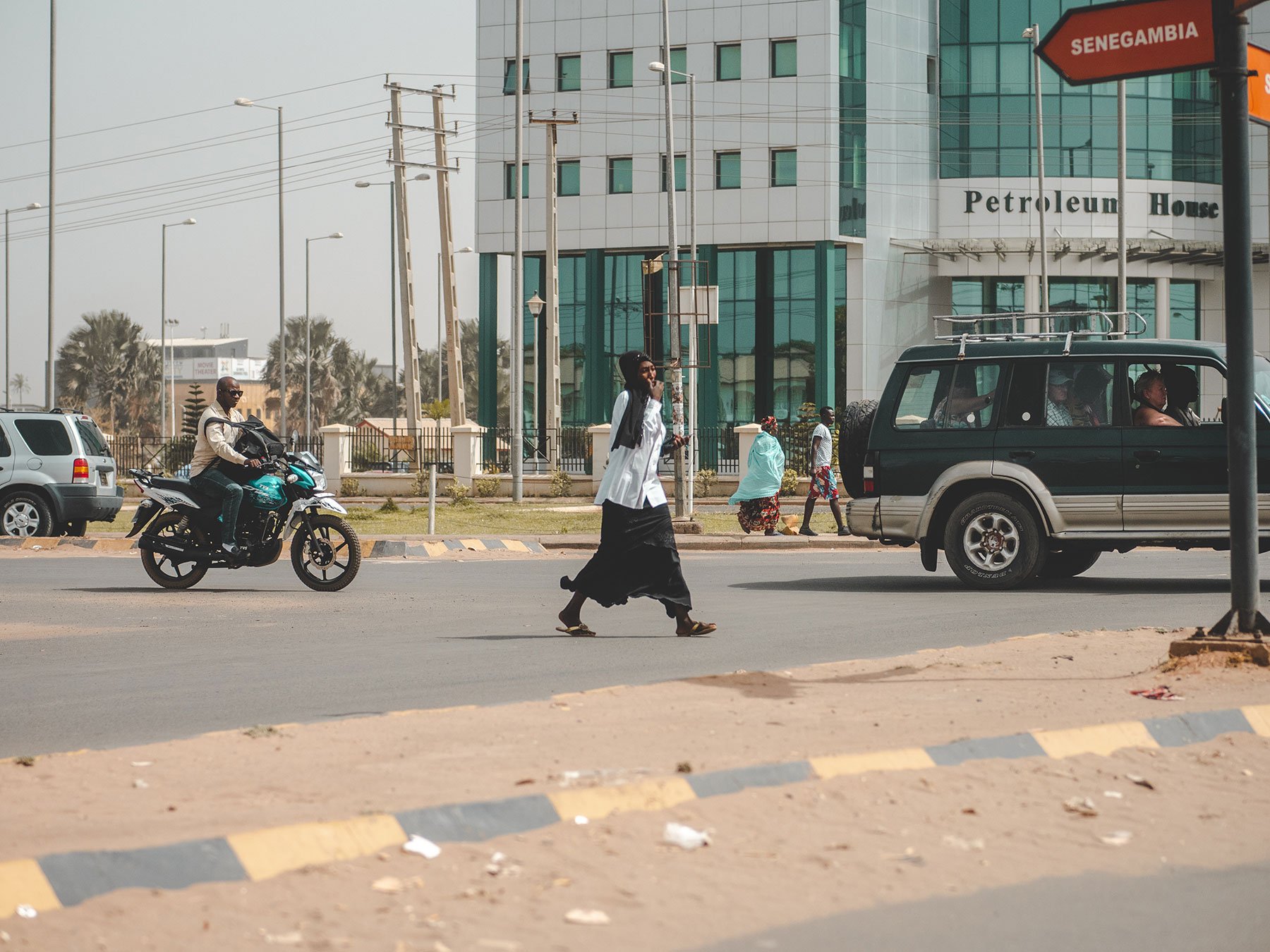
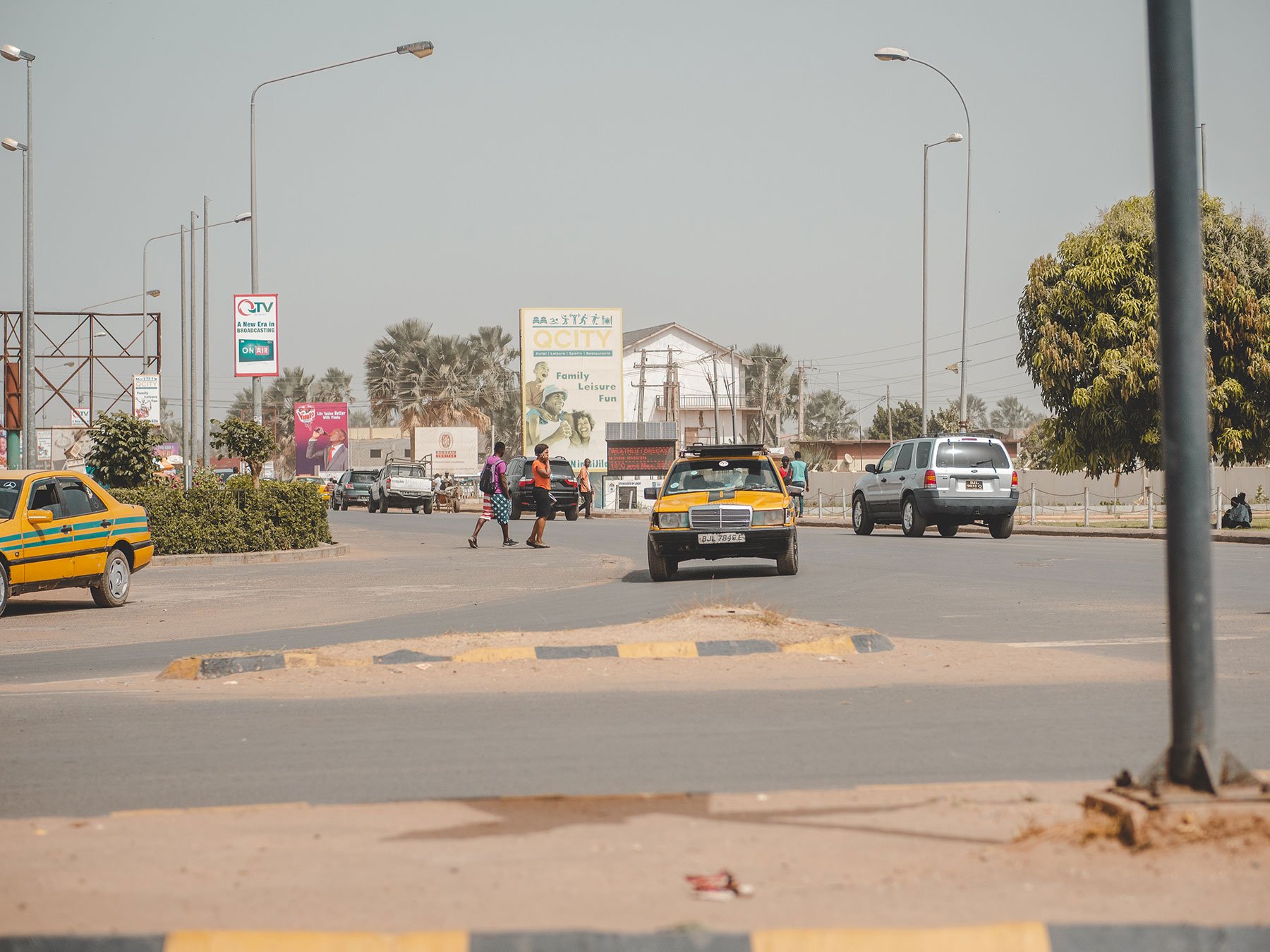
We eventually managed to find our car rental pick-up which was easier said than done. The signposting wasn’t the best which meant we did drive past it a couple of times.
We were renting a Mitsubishi 4×4 automatic. I always spend a little bit more on rental cars to get a reliable one. We would be contending with quite challenging driving conditions so a sturdy and automatic vehicle would be the most relaxing option. We could then put all focus into navigating the chaotic roads!
What I wasn’t expecting, however, was for the payment to be cash-only.
Oh crap, I thought. I didn’t bring enough cash for this.
I’d carefully withdrawn what I thought would be enough Gambian dalasi for our trip, assuming we’d pay for the car and accommodation by card.
At least the car rental company was allowing us to pay upon vehicle drop-off at the end of our rental which allowed us time to withdraw enough cash to pay for it.
The bummer was that we were only in The Gambia for 3 nights and 1 of those nights had already passed. Now we had to spend some of our precious time withdrawing money and ATMs were not a common sight. In fact, you can only withdraw money from a handful of key towns in The Gambia but at this point I wasn’t aware of that. My attitude at this point was very much ‘we can worry about that later’.
With that we hopped in our shiny rental car.
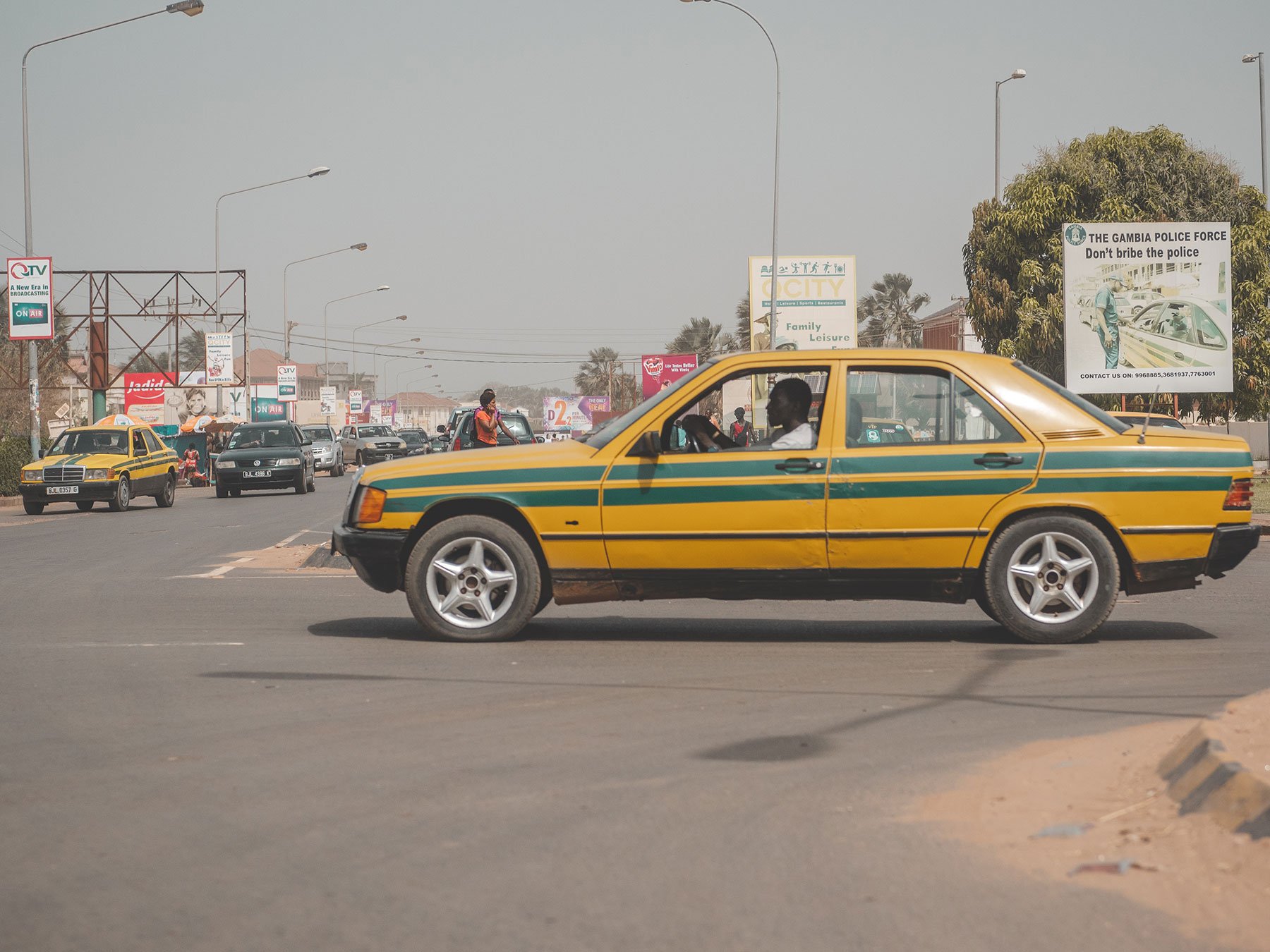
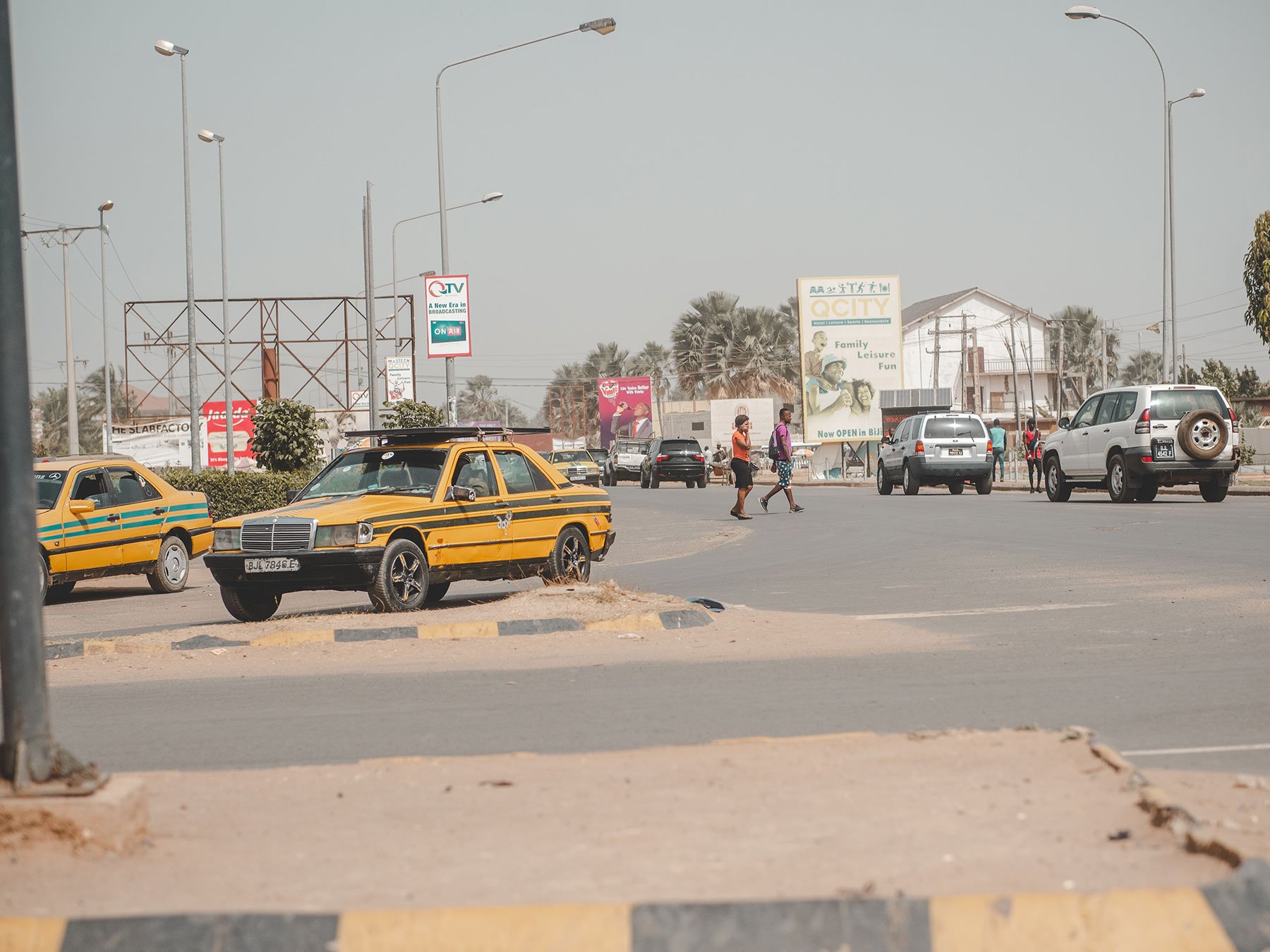
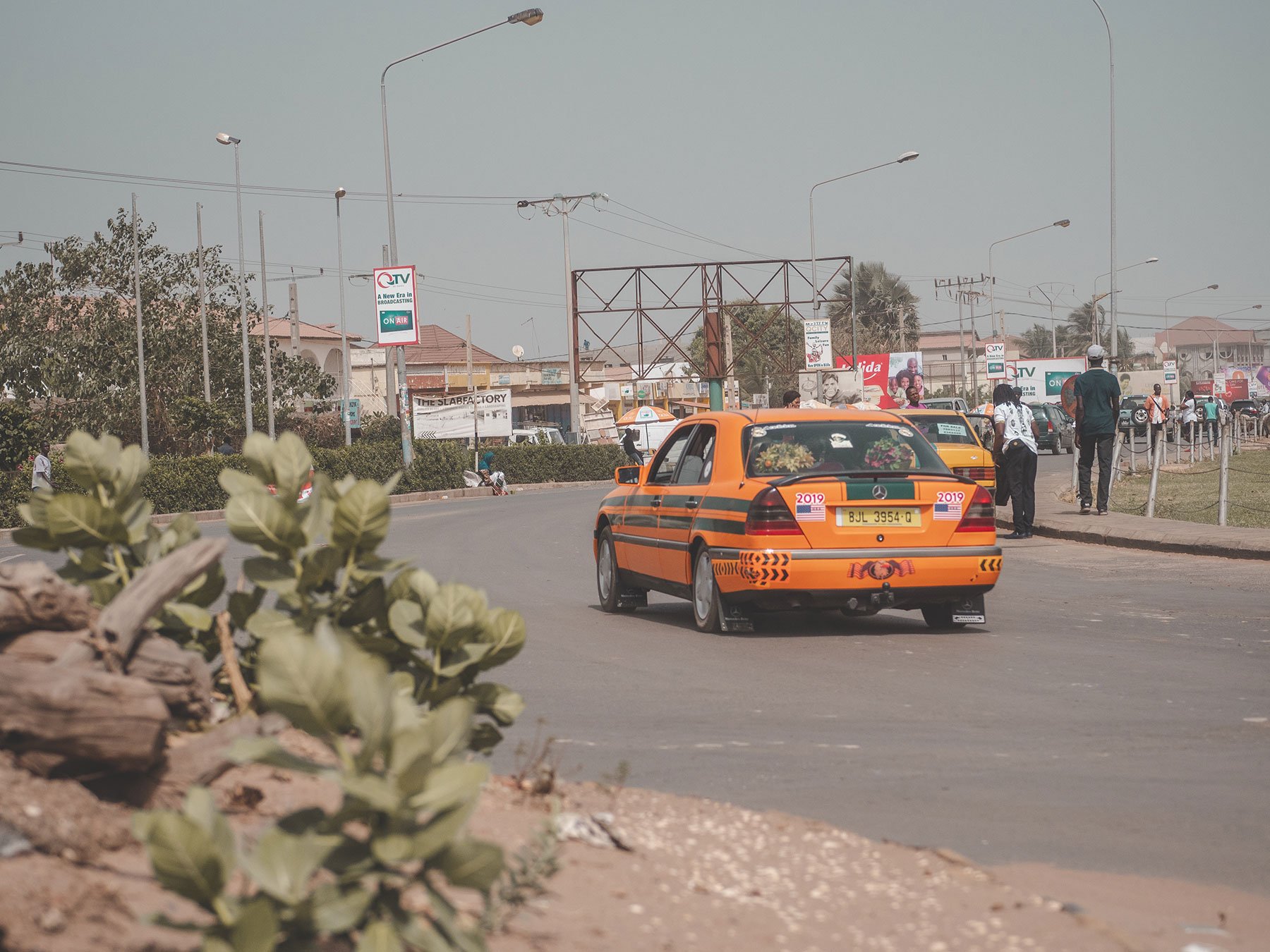
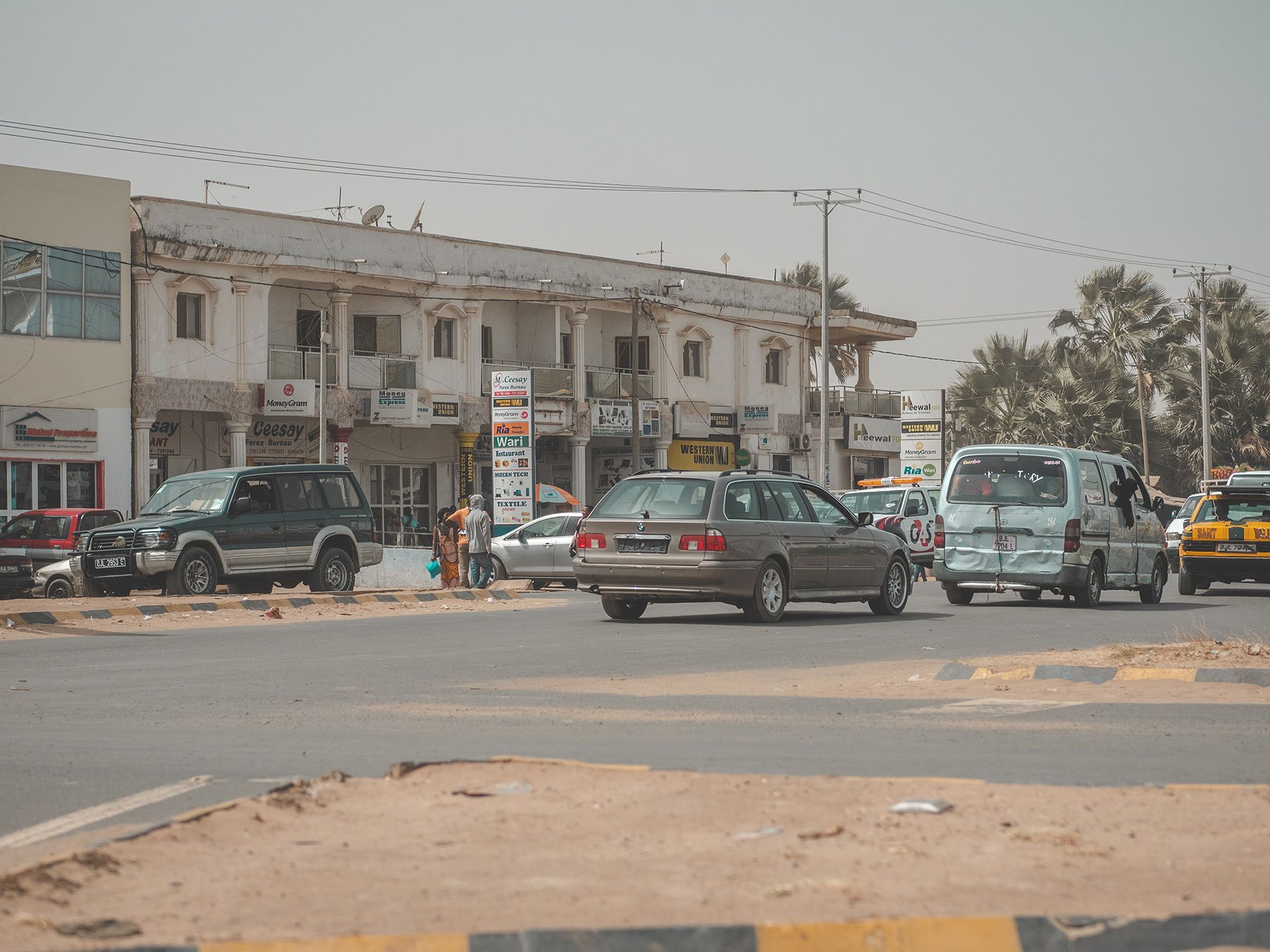
First on our agenda was the Serrekunda market where we hoped to pick up a belt. It probably wasn’t the best choice for a couple who were driving in The Gambia for the first time. The roads were absolutely packed! It was 10 times more chaotic than driving in regular Serrekunda.
The roads were lined with stalls and perhaps every inhabitant of the town was driving through the market, pulling up to purchase produce. It was madness.
The worst part was there was nowhere to turn or go. The safest option was just following the road along as all the side-roads were jam-packed with vehicles and a continuous stream of cars was trying to join the main road from every angle.
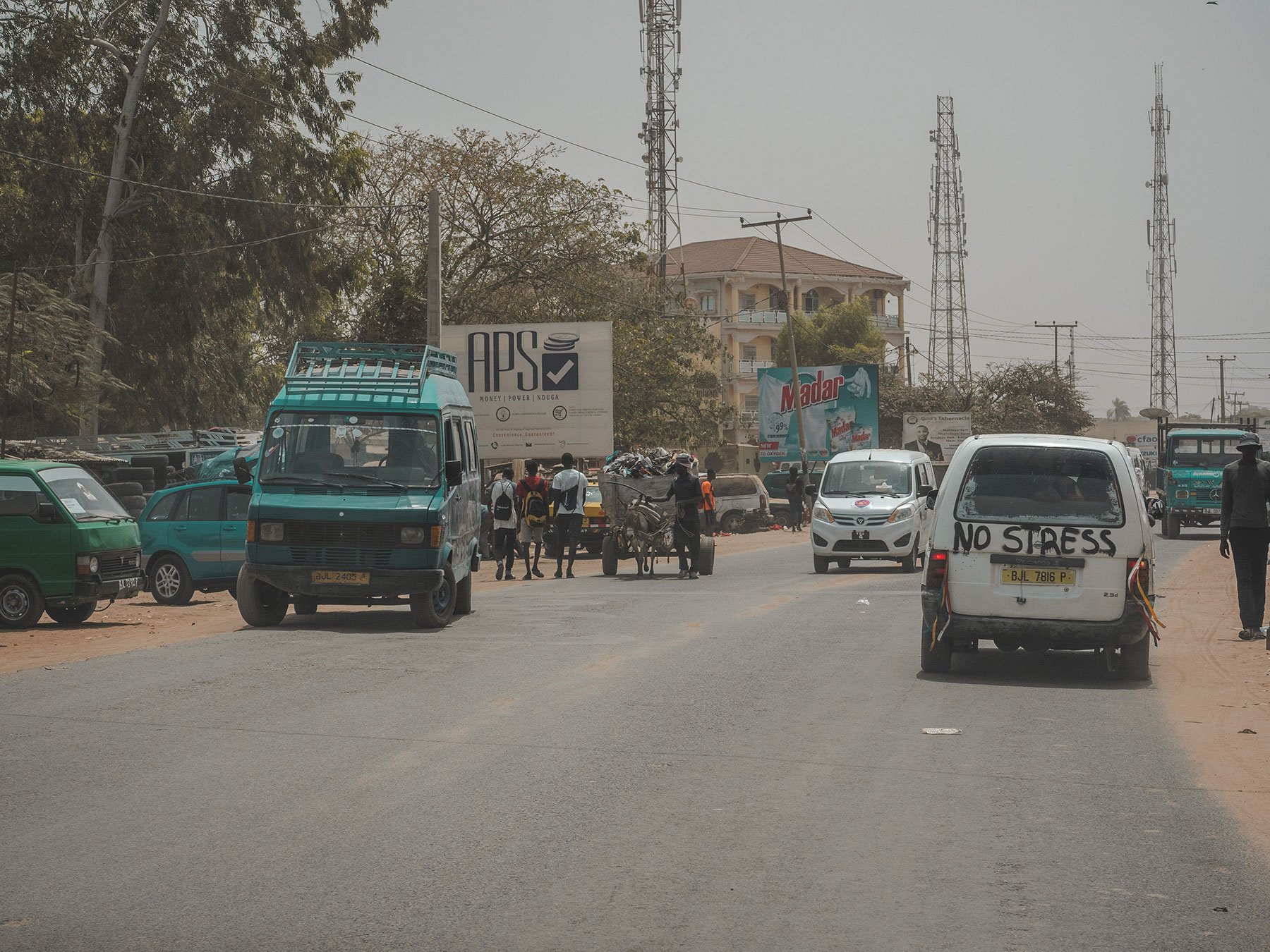
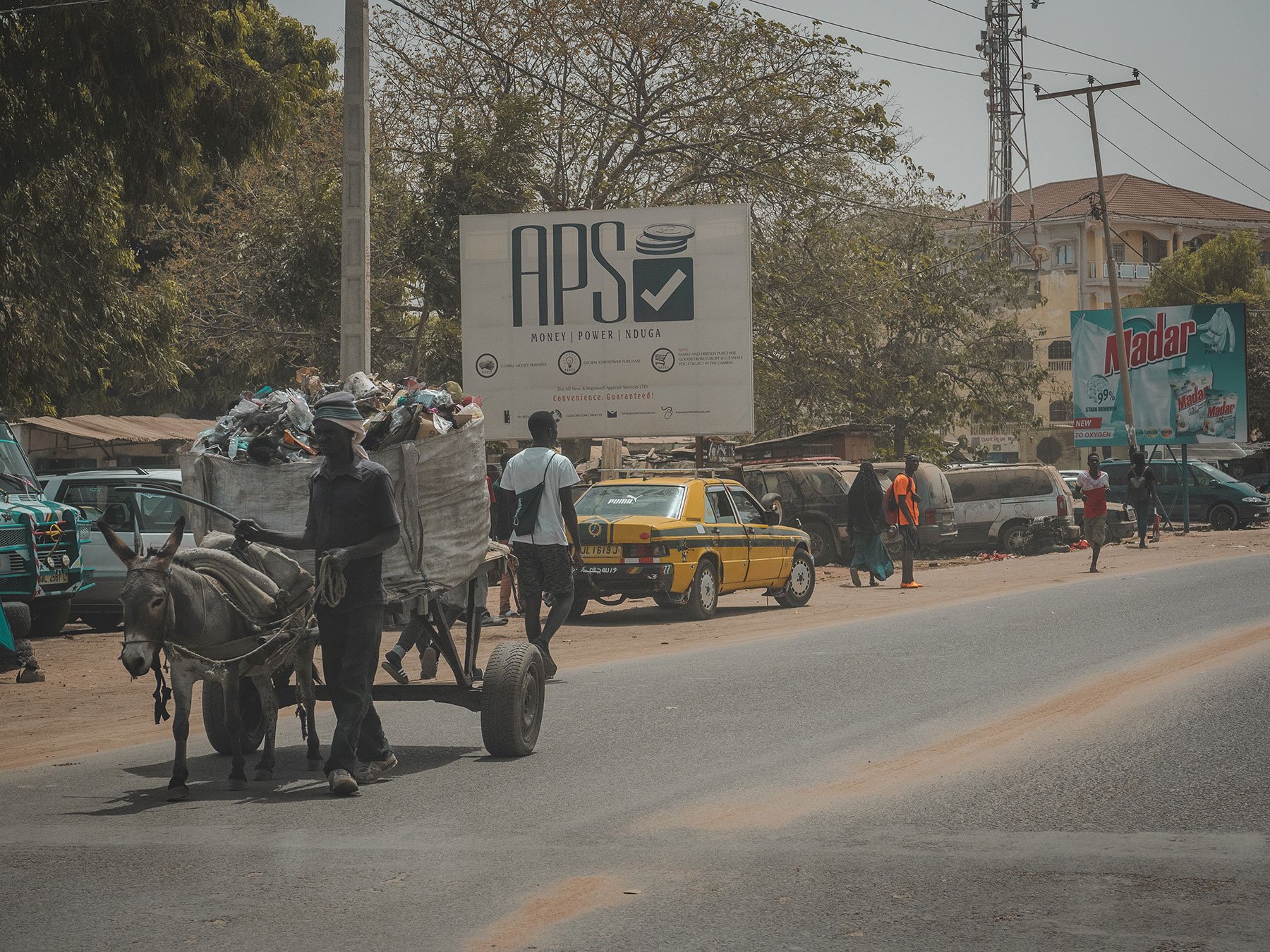
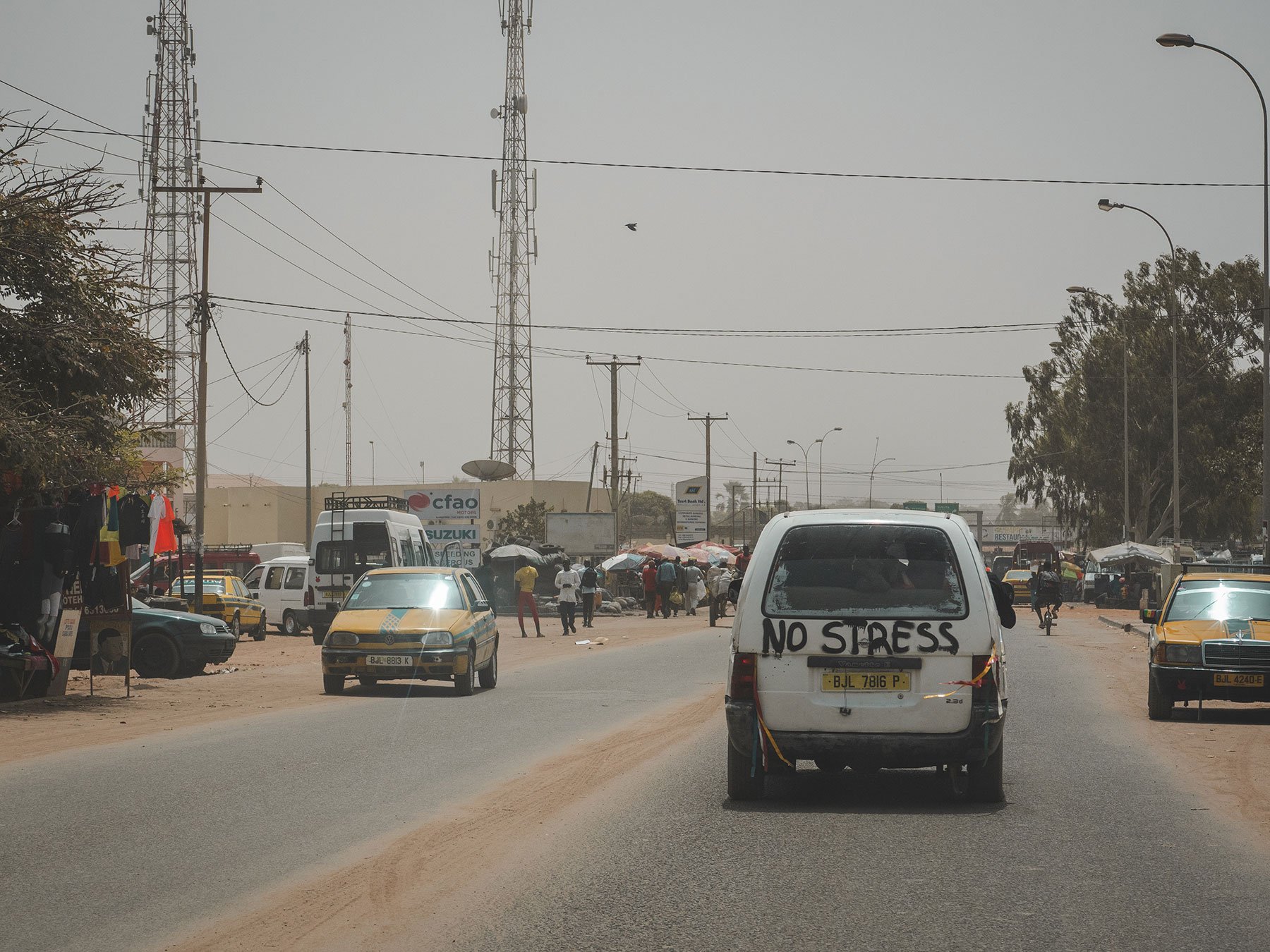
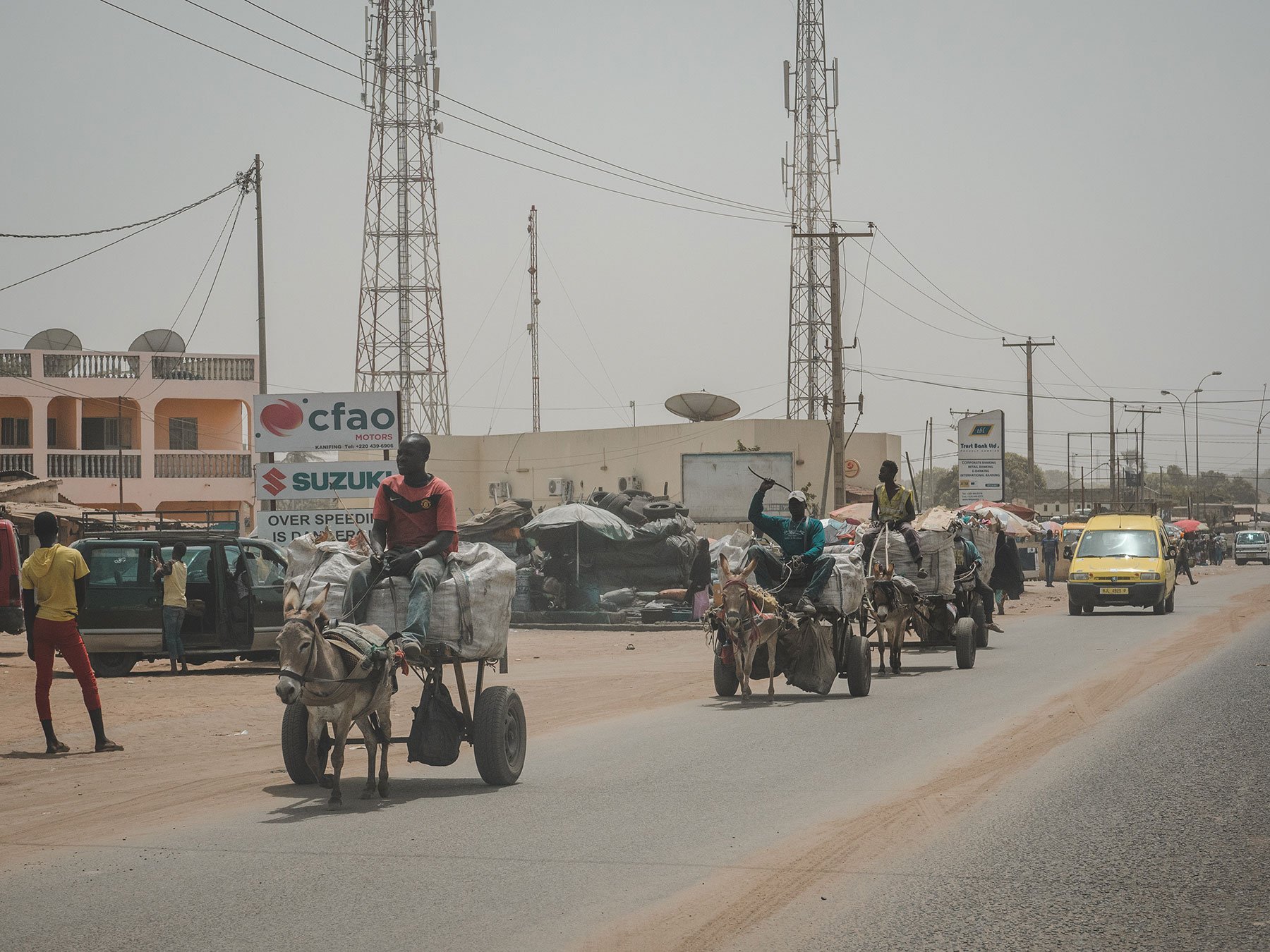
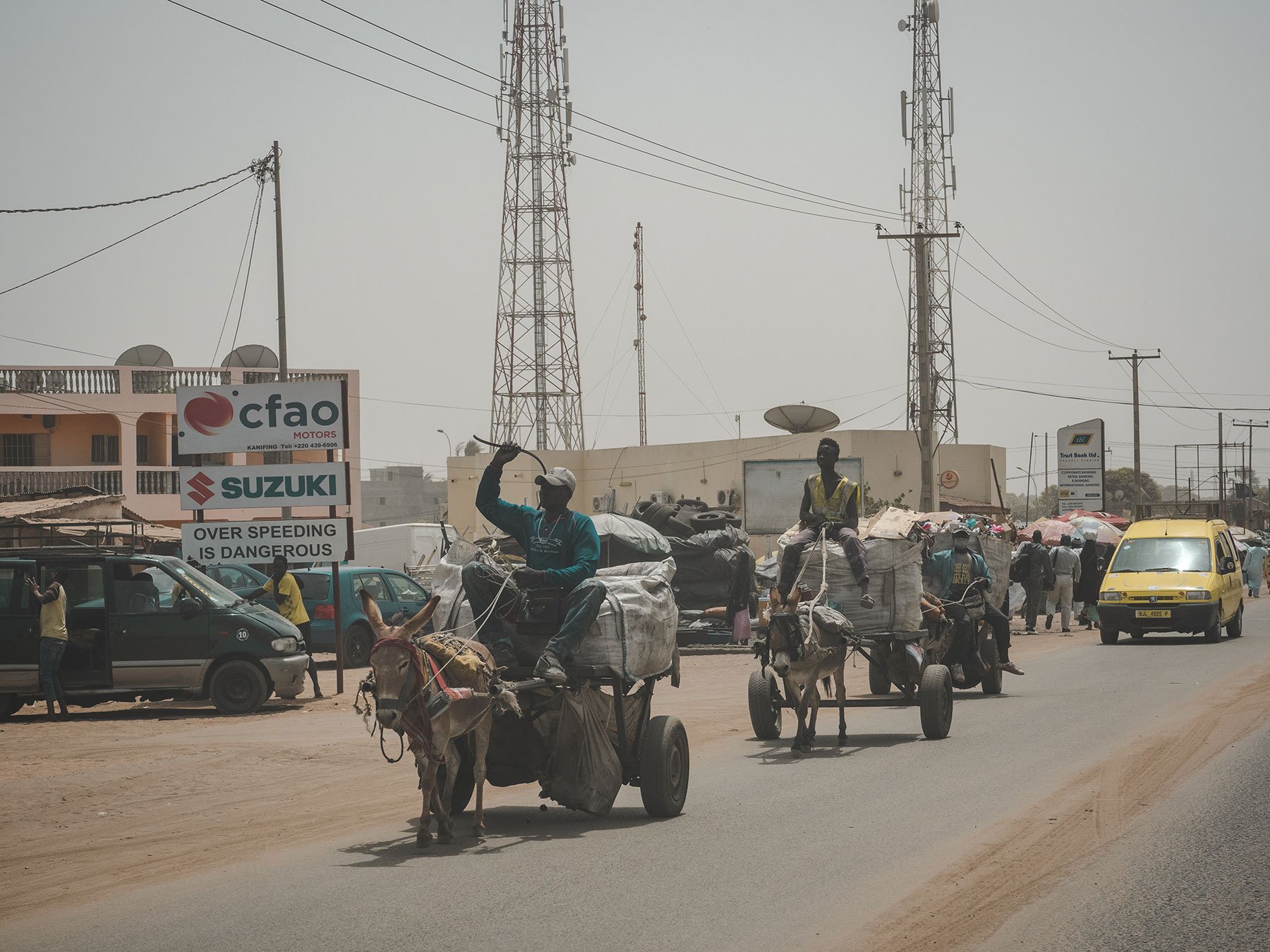
When we saw a belt stall at the side of the road, we took no chances. Lewis pulled up right outside the stall and I leapt from the car. A young boy, perhaps around 10 years of age was manning the stall.
“How much?” I asked as I touched a sturdy brown leather belt.
“75 dalasi.” He replied.
I probably could have negotiated but I didn’t. What was the point in trying to shave an extra few pence off when this belt was costing me under £2? Plus this boy would no doubt have needed the money a lot more than me.
The stall next to him was selling fresh bananas.
“75 dalasi.” The woman behind the stall told me.
So I bought a bunch of bananas as well.
It had been a successful yet speedy trip to the market. For now it was time to journey back to our eco-lodge, leaving the chaos of the bustling town behind us.
